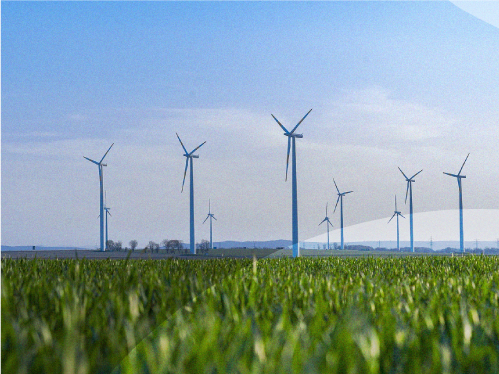
Sustainability and Recycling / RecyClass
Sustainability refers to the ability to maintain or support a process continuously over time. In business and policy contexts, sustainability seeks to prevent the depletion of natural or physical resources, so that they will remain available for the long term. Sustainable policies emphasize the future effect of any given policy or business practice on humans, ecosystems, and the wider economy. The concept often corresponds to the belief that without major changes to the way the planet is run, it will suffer irreparable damage.
As concerns about anthropogenic climate change, biodiversity loss, and pollution have become more widespread, the world has shifted to embrace sustainable practices and policies, primarily through the implementation of sustainable business practices and increased investments in green technology.
Concept of sustainability is mostly divided into three pillars: economic, environmental, and social—also known informally as profits, planet, and people.
Circularity and sustainability must be incorporated in all stages of a value chain to achieve a fully circular economy: from design to production and all the way to the consumer.
As result, gain is to create a sustainable future, and prevent “greenwashing,” the practice of misleading the public to make a business seem more environmentally friendly than it is.
Recycling EU regulations and EN standards related to sustainability, circular economy, plastics waste and plastics recycling. Introduced is obligation of all companies worldwide who place recycled material and plastic products to EU market. In February 2021, EU Parliament adopted a resolution on the new circular economy action plan demanding additional measures to achieve a carbon-neutral, environmentally sustainable, toxic-free and fully circular economy by 2050, including tighter recycling rules and binding targets for materials use and consumption by May 24, 2023.
Traditional, linear economic model, which is based on a take-make-consume-throw away pattern. This model relies on large quantities of cheap, easily accessible materials and energy. Also part of this model is planned obsolescence, when a product has been designed to have a limited lifespan to encourage consumers to buy it again. The European Parliament has called for measures to tackle this practice.
The circular economy is a model of production and consumption, which involves sharing, leasing, reusing, repairing, refurbishing and recycling existing materials and products as long as possible. In this way, the life cycle of products is extended. In practice, it implies reducing waste to a minimum. When a product reaches the end of its life, its materials are kept within the economy wherever possible thanks to recycling. These can be productively used again and again, thereby creating further value.
Circularity and sustainability must be incorporated in all stages of a value chain to achieve a fully circular economy: from design to production and all the way to the consumer.
RECYCLASS is EU normative body with it’s certification schemes. Members are plastic producers and recycling, as well as plastic packaging users.
Usually companies implement one of the schemes, but depending on their processes, all three schemes can be applied:
- Recycling Process (Verification of the origin of waste; Recycling process from waste till recycled granulate; Traceability throughout recycling Process; Quality and Environmental management systems ; Analyze % of recycled materials in the granulate; Analyze of yield (main and by-side products) and new waste; Analyze of water and energy consumption)
- Recycled Plastics-Traceability (It specifies requirements for companies using recycled material in the production of plastic products who wish to claim their recycled content under a comprehensive Audit Scheme. Focuses on the traceability of Recycled Plastics within a Process and the verification of the Recycled Content shares (pre-/post-consumer) of Plastic Products or Families of Products. It specifies requirements for companies using recycled material in the production of plastic products who wish to claim their recycled content under a comprehensive Audit Scheme. Focuses on the traceability of Recycled Plastics within a Process and the verification of the Recycled Content shares (pre-/post-consumer) of Plastic Products or Families of Products.)
- Recyclability rate of plastics products (It specifies requirements for companies selling plastic packaging on the European market who wish to claim their recyclability under a comprehensive Audit Scheme. It focuses on the recyclability by considering as main benchmark the ability of the plastic Packaging to be recycled. Recyclability of a Plastic Packaging must be verified throughout all the steps of the waste management process, that includes collection, sorting and recycling in order to make a claim of recyclability for Audited Packaging. Significant difference in terms of validity of certificates, types of certification, eligibility for certification and rating of products. Focus to design of packaging, in terms of shape, used materials and techniques of labelling. Certification may be granted to all companies commercializing Plastic Packaging as it will be placed onto the market, mainly brand owners and retailers, but not exclusively.
The Audit Scheme is developed following the guidance of the RecyClass Recyclability Methodology1 and EN 13430.)